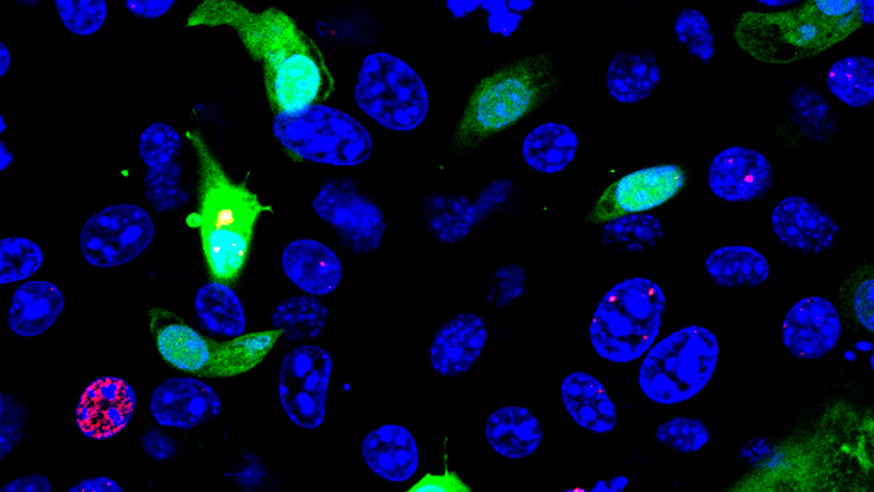Phase III clinical trial first to demonstrate benefits of viral immunotherapy

A phase III trial led in the UK by Professor Kevin Harrington at the ICR and The Royal Marsden was the first to definitively show that viral immunotherapy can have benefits for patients with cancer..
The trial results, published in the Journal of Clinical Oncology, showed that the viral immunotherapy Talimogene laherparepvec, or T-VEC, can halt the progression of melanoma by killing cancer cells and sparking the immune system into action against tumours.
T-VEC is a genetically modified form of herpes simplex virus type-1 which multiplies inside cancer cells and bursts them from within. It has been genetically engineered to produce a molecule called GM-CSF, which stimulates the immune system to attack and destroy the tumour.
The virus was modified to remove two key genes, called ICP34.5 and ICP47, so that it couldn’t replicate within healthy cells. Normal cells detect and destroy T-VEC before it can cause damage – but it replicates easily in cancer cells because their infection defences are compromised by genetic errors.
Researchers from 64 research centres worldwide randomised 436 patients with aggressive, inoperable malignant melanoma to receive either an injection of T-VEC, or a control immunotherapy.
They found that 16.3 per cent of the group given T-VEC showed a durable treatment response of more than six months, compared with 2.1 per cent given the control treatment.
Some patients had a response extending past three years, a mark oncologists often use as a proxy for cure in immunotherapy.
Importantly, responses to treatment were most pronounced in patients with less advanced cancers (stage IIIB, IIIC, IVM1a) and those who had yet to receive any treatment – underlining the potential benefits of T-VEC as a first-line treatment for metastatic melanoma which cannot be surgically removed.
Patients with stage III and early stage IV melanoma treated with T-VEC – a total of 163 people – lived an average of 41 months. This compared with an average survival of 21.5 months in the 66 earlier-stage patients who received the control immunotherapy.
The trial was funded by the manufacturer of T-VEC, Amgen.
Since the publication of the trial results, T-VEC has been recommended for approval for patients with advanced, inoperable melanoma by the European Medicines Agency and fully approved by the FDA in the US. It is now the first in a new class of cancer-fighting agents called oncolytic immunotherapies.
References:
Andtbacka et al Talimogene Laherparepvec Improves Durable Response Rate in Patients With Advanced Melanoma, Journal of Clinical Oncology (2015) DOI: 10.1200/JCO.2014.58.3377
More highlights from 2015